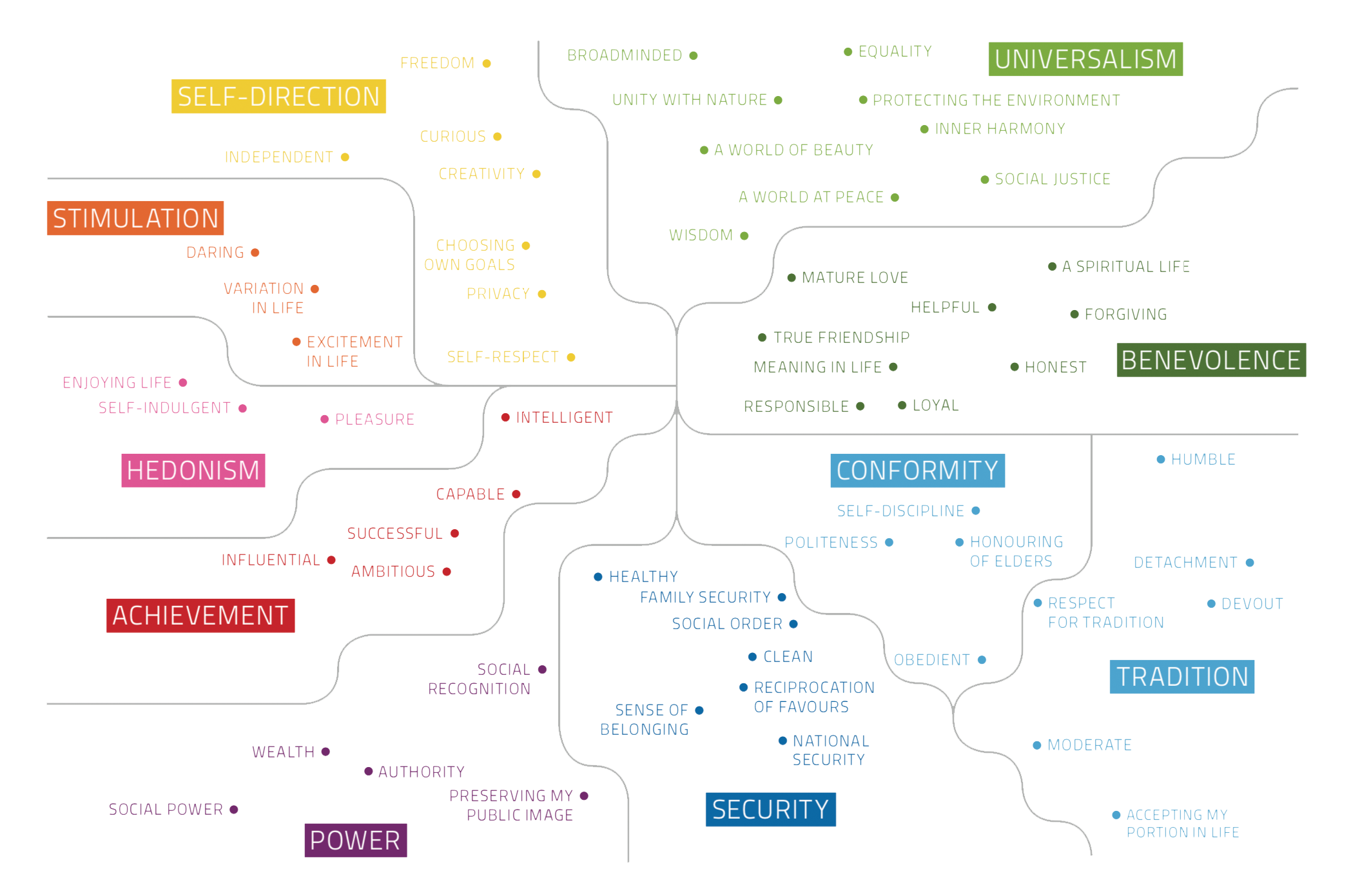2020 Vision: Common Compassion
The Turbulent 2020’s
I’m a lover not a fighter.
As we teeter towards the trauma of the “turbulent 2020’s” my on-life echo chamber is full of the language of rebellion in the face of an apocalyptic meltdown of the political, social and ecological systems on which our lives depend. (For a great overview of interconnected global challenges, see Forum for the Future’s Future of Sustainability 2019)
I’m tempted to freeze and succumb to my ostrich bias, putting my faith in piece-meal sticking plasters to simulate the status quo.
But there is a deeper need to fly from the current narrative. To sow systemic seeds of hope, by celebrating the universal human “compassionate” values that underpin our behaviours.
Universal Human Truths
Thanks to the pioneering work of Rokeach and Schwartz, used as the basis of the 21-item measure of repeatedly occurring human values in the World Values Survey and European Social Survey, evidence from hundreds of thousands of people in 89 countries shines a light on our similarities.
The Common Cause Foundation builds on this to “apply the psychology of values to engage people’s concern for their communities and the wider world”. It distinguishes between “self-interest” or extrinsic values, (centred on external approval, social status, power and rewards) and “compassionate” intrinsic values (for example self-direction, universalism, benevolence).
The evidence highlights universal human truths at the root of all behaviour:
- In 88 countries, the average person says they attach greater importance to ‘compassionate’ values than ‘self-interest’ values, regardless of gender, political orientation, and income
- In the UK only 26% of people attach more importance to “self-interest” values, although 77% believe this figure is much higher – we under-estimate each other
- Prioritising compassionate values such as freedom, creativity and self-respect, or equality and unity with nature is closely related to political engagement, concern about social justice, and environmentally friendly behaviours
- When people who attach high importance to ‘self-interest’ values reflect on the importance of values such as ‘self-acceptance’, ‘broadmindedness’, or ‘affiliation to friends and family’ their belief increases that action should be taken on issues such as climate change, loss of the countryside or child poverty.
Appealing to Compassion
Experts agree that compassionate values are a key driver of sustainable behaviour, albeit not the only one. But what of the values-action gap?
We are human. We each hold a mix of values shaped by lived experience which impact on our decisions depending on the choice environment, habitual norms and mood of the moment.
Values psychology is one piece of the behavioural science jigsaw.
Behavioural interventions that appeal to extrinsic, self-interest motivations (e.g. financial rewards or “eco-chic” status) perpetuate and strengthen those values that impede lasting change.
As we approach the 2020’s, it’s time to reframe the narrative to reinforce and celebrate our common universal culture of human compassion.

Links and Sources:
Forum for the Future: Future of Sustainability 2019: https://i5f3v6x2.stackpathcdn.com/fos2019/wp-content/uploads/2019/02/FutureofSust2019.pdf
Common Cause Foundation Research: https://valuesandframes.org/downloads
Weathercocks and Signposts: Ten years on: https://valuesandframes.org/resources/CCF_report_where_now_for_the_env_movement.pdf
Perceptions matter: The Common Cause UK values survey: https://valuesandframes.org/resources/CCF_survey_perceptions_matter_full_report.pdf
European Social Survey: Values: https://www.europeansocialsurvey.org/data/themes.html?t=values
World Values Survey: http://www.worldvaluessurvey.org/wvs.jsp



